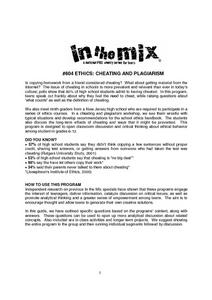Curated OER
Social Studies: Factors Involved in the Spread of Disease
Students examine the reasons diseases become epidemics. they analyze the social, political, and economics factors involved in the process. Students complete charts explaining how these factors aid the spread of disease and discuss...
Curated OER
Why is Smoking Bad For You?
Pupils discuss the reasons that smoking is harmful. In this anti-smoking lesson, students talk about how smoke affects their body. They make a chart and write down all the reasons they should not smoke.
Curated OER
Civil Rights Heroes
Students explore the actions of people involved in the Civil Rights Movement. They explore the reasons for the movement and its successes and failures, and explain the sacrifices made by those who participated in the movement.
Curated OER
Selecting A Destination
Students utilize atlases, maps, and Internet resources to select destinations and places to stop along the way on a day trip. They examine and write about the reasons they want to visit the particular places they chose.
Curated OER
We Need All Five!
Second graders review foods and their groups. They discuss the reasons why they need to eat from all five food groups. They try to write using only a few of their five fingers to see what happens when you don't use all five fingers.
Curated OER
Thanksgiving
First graders examine the reasons for the Thanksgiving celebration in the United States. They research information about what type of items were used in the past and items that are currently used. They investigate life on the Mayflower...
Curated OER
Who Plays What?
Ninth graders divide in pairs 3 cards with the words possible, impossible and certain on them. Ask questions of the class and get the students to hold up the word that describes the event (for example) Tomorrow it will snow. You have...
Curated OER
Time Problems
Students make sensible estimates and check for reasonable results. They also solve problems with positive and negative integers using practical activities or models as needed.
Curated OER
Making Calls
Students discuss the importance of a telephone number and make a telephone book. In this telephone number instructional activity, students discuss their telephone number and its importance. Students list reasons to know their phone...
Curated OER
Good or Bad Fire?
Students discover that fire is useful but it can be also dangerous. They observe a good and bad picture to which they determine if it's an example of a good or bad fire; giving reasons for their answers and recording their comments...
Curated OER
Why Don't People Vote?
Fourth graders conduct an investigation about the subject of voting. They attempt to answer the essential question of, "Why should someone vote in the first place?" The information is used to help students to develop critical thinking...
Curated OER
Why Don't Whales Have Legs?
High schoolers are given a variety of materials and are asked to design a heat loss experiment that results in a reasonable explanation of "Why don't whales have legs?" students work with the theory of natural selection.
Curated OER
The Diagonal Of A Box
Young scholars solve problems using the pythagorean theorem. They use critical thinking skills in order to use a systematic process to solve the problem. Upon solving each problem the uniqueness of the instructional activity is asking...
Curated OER
Exercise Examples
Second graders discuss reasons for performing physical activity. They develop a list of exercises to share with other groups. They lead other groups through a set of exercises on the playground.
Curated OER
Land Bridge Theory
Fifth graders observe a map that includes where the land bridge was located and that its name was Beringia and look in the Social Studies books to read about the Land Bridge Theory. The class then brainstorms reasons why they think...
Curated OER
Science Week 2006
Learners read these news reports: Science is hard and dull says kids, and PM behind Science Week campaign. They then discuss that the news stories show two sides of the public image of science in the UK. The teacher explains that...
Curated OER
Comparing Rights Documents
Students compare rights from the Universal Declaration of Human Rights with those in the United States Bill of Rights and Amendments. They explore reasons for the presence or absence of certain rights.
Curated OER
The Coldest Continent
Students use the internet to conduct research on the continent of Antarctica. As a class, they review the continent's climate and the reasons behind the cold temperatures. After reading an article, they draw a picture of what they...
Curated OER
People of the West
Sixth graders research and identify key facts about men and women of the Westward Movement. They assess the events and reasons that motivated people to move west, hardships they faced and their contributions to the nation. Each student...
Curated OER
Art Appreciation
Students explain that everyone has their own opinion about what they think is good art. They study images, then put a heart behind the one they like the best, the least and the one they think their mom or dad would like.
Curated OER
Squirt
Fourth graders using the idea of "how many more squirts" fill a container to develop multiplicative thinking. They also investigate the idea of conservation of volume when working with oddly shaped containers. They attempt to use...
Curated OER
Social and Cultural Significance
Students examine the social history of buildings and think creatively about the origins of buildings for which they do not know the history. They discuss the influence of social issues on architecture.
Curated OER
Ethics: Cheating and Plagiarism
Students examine the reasons why students cheat and plagiarize material. They discuss what could have been done to avoid cheating and copying material. They answer questions to end the lesson.
Curated OER
Government Failure: Congestion, Pollution and the Pensions Crisis
Learners determine reasons for market failure while examining clear definitions for government failure, rent seeking, and log rolling. They gain an idea of how governments can solve the problems they face in correcting these failures.

























